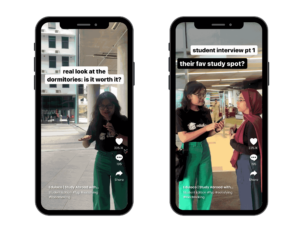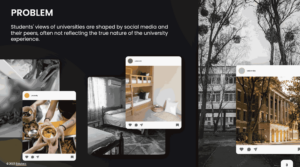Home » Archives for March 2021 » Page 2
Life In Malaysia: Useful Words & Important Things To Know
When asked about life in Malaysia, the first thing that comes to mind is the irresistible tourist destinations, scrumptious delicacies, and cultural diversity of races and religions.
These descriptions have long marked Malaysia as one of the world’s renowned tourist destinations.
 Image source: Focus Malaysia
Image source: Focus Malaysia
Besides its UNESCO World Heritage Sites and breathtaking marine parks, Malaysia is at the forefront of world-class tertiary education. As home to various notable institutions, the country is quickly becoming one of the most sought-after destinations among international students seeking education with international recognition. Most of the time, students choose to study and live in Malaysia due to its affordable cost of living and college fees.
When you begin life in Malaysia, you will have to converse in the national language every once in a while. Learning Bahasa Melayu, or the Malay language, is actually quite easy! The words are spelled using ABCs, so international students should have no problems reading them if they’re already fluent English users. The only challenge now is for you to understand the meaning of the words and learning to use them to construct Malay sentences.
There are several tips and tricks that can help you learn Malay faster:
1) Spot the signboards
 Image source: ResearchGate
Image source: ResearchGate
The locals are fluent in both Malay and English, so bilingual signboards are very common in Malaysia. Reading the Malay words and their English counterparts helps you to understand the words better and faster.
2) Utilize Malaysian Media
If you want to get used to the language, surround yourself with sounds of the locals speaking Malay. You can make your life in Malaysia easier by listening to Malay radio channels and watching online Malay programs and news with subtitles.
3) Use the Language

Nothing is more memorable than a real-life experience. When you learn Malay, don’t just practice in the comforts of your classroom; go outside and speak the language! You can start by conversing in simple Malay sentences with waiters of a mamak shop or the nasi lemak seller at your campus. They’ll be happy to chat with you!
4) Befriend a Native Speaker
 Image source: Study International
Image source: Study International
Life in Malaysia is incomplete if you don’t befriend a local and pick up a new word or two!
Most Malaysian students went to a national secondary school, which means they have a solid understanding of the Malay language. When you’re on campus, look for native speakers and befriend them. Malaysians are known to be friendly folks, so don’t be shy and ask for their help!
We have compiled some common words and phrases that you can use on a daily basis:


Are you applying to study in Malaysia? We can help you for free. Contact us at +60 11-2069 9087 or drop us an email at [email protected].
Are you interested to study in Malaysia?
Please fill up the form and our conselors will get back to you shortly.
Most Popular

Study Abroad Perks & How To Guarantee Your Spot
Study Abroad Perks & How To Guarantee Your Own Spot Your study overseas is worth every penny. Image source: Pexels When you study abroad, you experience better personal growth. Sure, studying abroad and navigating
What's new

5 Easy and Affordable Recipes for Students Away from Home! – Eduloco Recipes
Looking for some easy and wallet-friendly recipes? You’re in the right place! At Eduloco, we understand the student life hustle, and that’s why we’ve curated

How to Write a Convincing University Application Personal Statement (+ Free Template!)
Applying to universities can often feel like navigating a labyrinth with numerous challenges at every turn. The weight of crafting the perfect essay, capturing your

Empowering Education with Eduloco’s Student Loan in Malaysia
Eduloco Collaborates with Affin Bank to Offer Student Loan Program At the forefront of educational accessibility, Eduloco, an emerging EdTech platform focusing on democratizing higher

TOEFL vs. IELTS: Choosing the Right English Proficiency Test for Your 2024 Study Abroad Journey
Introduction: Planning to take an English proficiency test for your study abroad dreams but unsure about TOEFL and IELTS? You’re not alone. Despite the widespread

Democratizing Education: Personalized Academic Plans For Students in Secondary Education
Democratizing Education: Personalized Academic Plans At Eduloco, we’re pioneering the democratization of education, starting with tailored academic plans for secondary students. This isn’t just about












 Image source:
Image source:  Image source: Pexels
Image source: Pexels

 Image source:
Image source: 

 Image source:
Image source: 

















 Image source: Pexels
Image source: Pexels Image source:
Image source:  Image source: Pexels
Image source: Pexels







 Image source: Pexels
Image source: Pexels Image source: Quiet Revolution
Image source: Quiet Revolution Image source: Pexels
Image source: Pexels
 Image source: Unsplash
Image source: Unsplash Image source: Pexels
Image source: Pexels Image source: Unsplash
Image source: Unsplash







 Image source: Pexels
Image source: Pexels
 Image source: APU Facebook
Image source: APU Facebook Image source: SEGI University Website
Image source: SEGI University Website Image source: Free Malaysia Today
Image source: Free Malaysia Today Image source: Sunway College Facebook
Image source: Sunway College Facebook Image source: MSU Facebook
Image source: MSU Facebook Image source: Pexels
Image source: Pexels